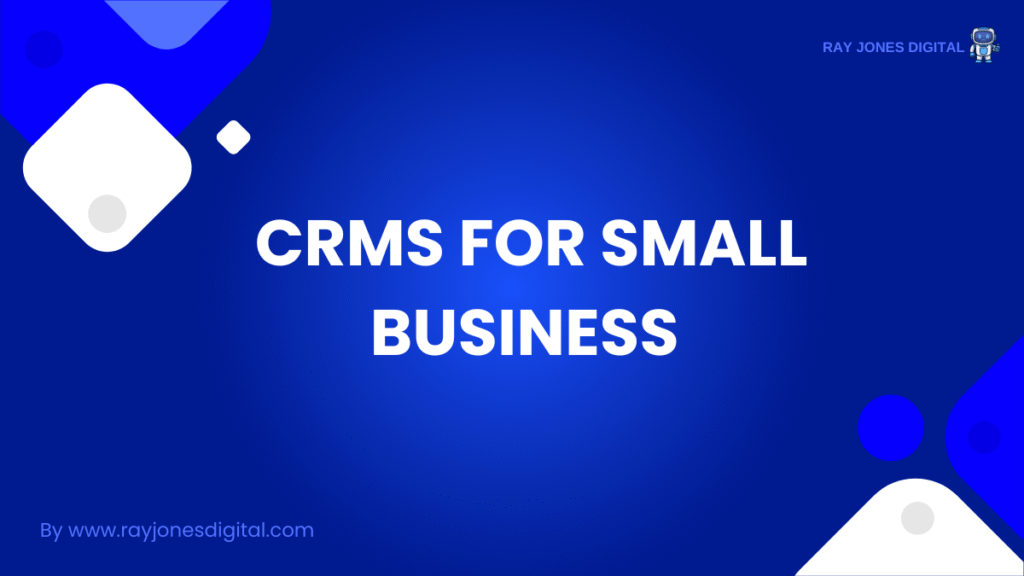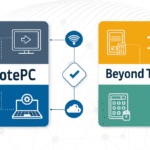
Customer relationships drive business success, especially for small enterprises where every interaction matters. The right Customer Relationship Management (CRM) system can transform how you manage leads, nurture prospects, and retain customers—but choosing the wrong one can drain your resources and complicate your operations.
Small business owners face unique challenges when selecting CRMs for Small Business. Budget constraints, limited technical expertise, and the need for immediate impact mean you can’t afford to make the wrong choice. This comprehensive guide examines the top CRM solutions that entrepreneurs trust in 2026, helping you make an informed decision that will accelerate your business growth.
What Makes a CRM Perfect for Small Businesses?
Small businesses require CRM solutions that deliver enterprise-level functionality without the complexity or cost. The best small business CRMs share several key characteristics that set them apart from their enterprise counterparts.
Affordability Without Compromise
Budget-conscious entrepreneurs need CRM systems that offer maximum value. The top solutions provide robust features at accessible price points, often starting with free tiers that small businesses can use to test functionality before committing to paid plans.
Ease of Use and Quick Implementation
Small business owners don’t have months to spend on CRM implementation. The best systems offer intuitive interfaces that require minimal training, allowing your team to start seeing benefits within days rather than weeks.
Scalability for Growing Businesses
Your CRM should grow with your business. The most effective solutions for small businesses offer flexible pricing tiers and expanding functionality, ensuring you won’t outgrow your system as your company develops.
Integration Capabilities
Modern small businesses rely on multiple tools for operations. The best CRMs integrate seamlessly with popular small business software, including accounting systems, email marketing platforms, and project management tools.
Top CRM Solutions for Small Businesses in 2026
HubSpot CRM
HubSpot continues to dominate the small business CRM market with its generous free tier and comprehensive feature set. The platform offers contact management, deal tracking, and basic automation without any cost, making it ideal for startups and micro-businesses.
The free version includes unlimited contacts, 1,000,000 contacts storage, and basic email marketing capabilities. Paid plans start at affordable rates and add advanced features like custom workflows, advanced reporting, and enhanced automation.
Best for: Startups and small businesses prioritising inbound marketing alongside CRM functionality.
Pipedrive
Pipedrive’s visual sales pipeline approach makes it exceptionally popular among small business owners who want to understand their sales process at a glance. The platform focuses on sales management with an intuitive drag-and-drop interface that simplifies deal progression tracking.
The system excels at activity-based selling, helping small businesses maintain consistent follow-up with prospects and customers. Advanced features include email integration, custom fields, and detailed sales reporting.
Best for: Sales-focused small businesses that want visual pipeline management.
Zoho CRM
Zoho CRM offers excellent value for money with a comprehensive feature set that rivals enterprise solutions. The platform includes lead management, contact organisation, sales forecasting, and workflow automation at competitive prices.
The system integrates seamlessly with other Zoho business applications, creating a unified business management ecosystem. Advanced AI features help small businesses identify the best leads and predict sales outcomes.
Best for: Small businesses already using Zoho’s business suite or those wanting extensive customisation options.
Salesforce Essentials
Salesforce brings enterprise-grade CRM capabilities to small businesses through its Essentials package. The platform offers simplified setup and management while maintaining the power and flexibility that made Salesforce the global CRM leader.
Features include contact and opportunity management, email integration, and mobile accessibility. The platform’s AppExchange marketplace provides access to thousands of third-party integrations and extensions.
Best for: Small businesses planning significant growth and wanting enterprise-level capabilities.
ActiveCampaign
ActiveCampaign combines CRM functionality with powerful marketing automation, making it ideal for small businesses that want to nurture leads through sophisticated email sequences and behavioural triggers.
The platform excels at creating personalised customer journeys, allowing small businesses to deliver targeted messages based on customer actions and preferences. Advanced segmentation capabilities help optimise marketing efforts.
Best for: Small businesses prioritising email marketing and customer journey automation.
Key Features to Prioritise
Contact Management and Organisation
Effective contact management forms the foundation of successful customer relationships. Look for CRMs that offer comprehensive contact profiles, custom fields, and easy search functionality. The best systems allow you to segment contacts based on various criteria and track interaction history.
Sales Pipeline Visualisation
Visual sales pipelines help small business owners understand their sales process and identify bottlenecks. Choose CRMs that offer customisable pipeline stages, drag-and-drop functionality, and clear progress indicators.
Automation Capabilities
Marketing and sales automation can dramatically improve efficiency for small businesses with limited resources. Prioritise CRMs that offer email automation, lead scoring, and workflow triggers based on customer behaviour.
Reporting and Analytics
Data-driven decision making is crucial for small business success. Select CRMs that provide comprehensive reporting on sales performance, customer behaviour, and marketing effectiveness. The best systems offer customisable dashboards and scheduled reports.
Mobile Accessibility
Modern business owners need access to customer information regardless of location. Choose CRMs with robust mobile applications that offer full functionality, not just basic viewing capabilities.
Making the Right Choice for Your Business
Selecting the perfect CRM requires careful consideration of your specific business needs, budget constraints, and growth plans. Start by identifying your primary objectives—whether that’s improving sales processes, enhancing customer service, or automating marketing efforts.
Consider conducting free trials of your top choices, involving your team in the evaluation process. The best CRM for your business is one that your team will actually use consistently, so prioritise user experience and ease of adoption.
Budget considerations should include not just the monthly subscription cost but also implementation time, training requirements, and potential integration expenses. Many small businesses find that investing in a slightly more expensive system that offers better integration and automation capabilities provides better long-term value.
Maximising Your CRM Investment
Proper Implementation Planning
Successful CRM implementation requires careful planning and realistic expectations. Start by cleaning and organising your existing customer data, establishing clear processes for data entry and management, and setting measurable goals for CRM success.
Team Training and Adoption
Even the best CRM system will fail without proper user adoption. Invest time in training your team, creating standard operating procedures, and establishing accountability measures to ensure consistent system usage.
Regular Review and Optimisation
CRM systems require ongoing attention to deliver maximum value. Regularly review your processes, analyse performance metrics, and adjust your approach based on results. The best small business CRMs provide the flexibility to evolve with your changing needs.
Building Stronger Customer Relationships
The right CRM system can transform your small business by improving customer relationships, increasing sales efficiency, and providing valuable insights into your market. Success depends on choosing a system that aligns with your business goals, budget, and team capabilities.
Each of the CRM solutions highlighted in this guide offers unique advantages for small businesses. Take time to evaluate your specific needs, test different options, and choose the system that best supports your growth objectives. Remember that the most expensive option isn’t always the best choice—focus on finding the CRM that delivers the features and functionality your business needs to thrive.

I am Ray Jones Digital
My current occupations: a Digital Marketer, Local SEO expert, Link Builder, and WordPress SEO specialist. Shopify SEO, Ecommerce Store Management, and HTML & WordPress Developer I have been practicing the above mentioned services for more than 10 years now As an SEO expert working with your ongoing projects.



